Posted on 6/28/2024
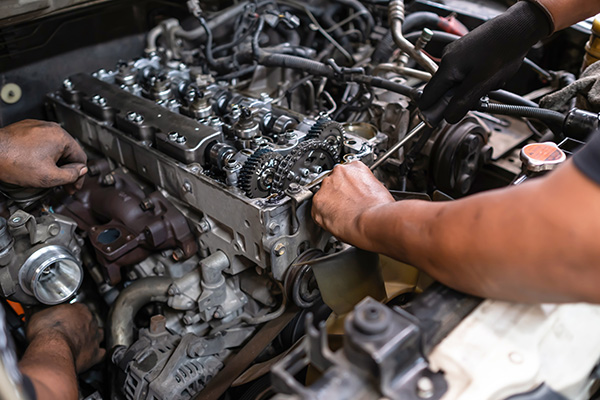
Is your car making strange noises, losing power, and constantly breaking down? These are signs that your engine might need some serious attention. One solution that can bring your car back to life is an engine overhaul. But what exactly is an engine overhaul, and how can it rejuvenate your vehicle? Let's explore the details and how this intricate process can transform your driving experience. The Engine Overhaul Process An engine overhaul, also known as a rebuild, involves disassembling your vehicle's engine and thoroughly inspecting, cleaning, and replacing worn-out parts. This process can be likened to giving your engine a second chance at life. At Pete's Auto Service, our skilled technicians meticulously examine each component, including the pistons, cylinders, crankshaft, and valves, to ensure everything is in optimal condition. If any part is beyond repair, it is replaced with a new or refurbished one. The engine is then reassembled ... read more
Posted on 5/27/2024

Navigating Charlotte's heavy traffic can be daunting, but with the right strategies, you can stay safe and maintain your sanity on the road. We'll share practical tips and techniques to help you navigate congested streets, avoid common pitfalls, and arrive at your destination stress-free. Charlotte's Traffic Patterns To effectively navigate Charlotte's heavy traffic, you must understand the city's traffic patterns. Peak hours typically occur during morning and evening rush hours, with congestion exacerbated by ongoing construction projects and major events. Familiarizing yourself with these patterns can help you plan your routes and avoid the busiest times on the road. Plan Your Routes Wisely When traveling in Charlotte's heavy traffic, planning your routes ahead of time can make a significant difference in your commute. Utilize GPS navigation systems or smartphone apps to identify alternative routes and real-time traf ... read more
Posted on 4/29/2024
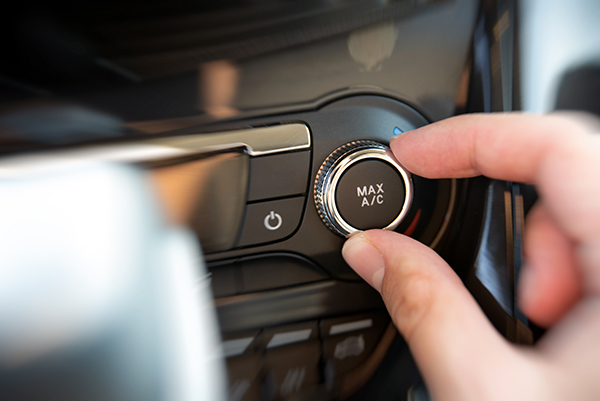
Are you feeling the heat even when your car's AC is on full blast? Many drivers encounter this frustrating situation, especially during scorching summer months. We'll explore why your car's AC might blow hot air and discuss practical solutions for returning it to its chilling best. Common Reasons for Hot AirRefrigerant Leak A refrigerant leak is one of the most common culprits behind hot air blowing from your car's AC. Refrigerant is the substance responsible for cooling the air in your AC system, and if there's a leak, it can result in insufficient cooling. Faulty Compressor The compressor is the heart of your car's AC system, and if it's malfunctioning or failing, it can lead to hot air blowing from the vents. Issues with the compressor can range ... read more
Posted on 4/2/2024
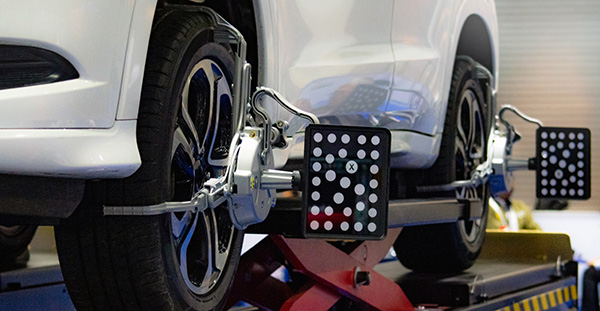
Is your car veering to one side when you're driving straight ahead? Do you feel vibrations through the steering wheel? These could be signs that your car needs a wheel alignment. Ignoring these warning signs can lead to uneven tire wear, poor handling, and compromised safety on the road. 1. Uneven Tire Wear Have you noticed that your tires are wearing down unevenly? If the tread on one side of the tire is significantly more worn than the other, it could be a sign of misalignment. When your wheels are not properly aligned, they exert uneven pressure on the tires, causing them to wear down prematurely. Regularly inspecting your tires for signs of uneven wear can help you catch alignment issues early and prevent further damage. 2. Vehicle Pulling to One Side One of the most common signs of wheel misalignment is when your car pulls to one side while driving on a st ... read more
Posted on 2/27/2024
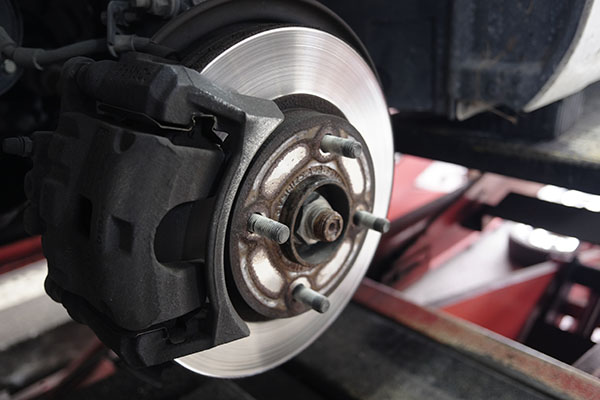
Ever wonder, "Why do I need to replace my brake pads again?" Many drivers do, especially when their vehicle's brake pads seem to be on a fast track to wear and tear. Luckily, we are here to explain a few common causes, so keep on reading if you want to find out! Driving Habits Your driving style plays a significant role in the lifespan of your brake pads. Frequent hard braking, especially at high speeds, generates excessive heat and friction, leading to rapid wear. It's like running—sprinting to a stop wears out your shoes faster than a gentle jog. If you're someone who prefers the fast lane and sudden stops, your brake pads are bearing the brunt of that choice. Load and Towing Think of your vehicle as a beast of burden; the more weight it carries, the harder its components have to work, especially the brakes. Hauling heavy loads or towing ... read more
Posted on 1/30/2024
.jpeg)
Ever wonder what happens when you turn the key and your car roars to life? Part of that magic is thanks to the vehicle's exhaust system - various components working harmoniously to keep your ride running smoothly and cleanly. Understanding How an Exhaust System Works Its primary role is to safely guide exhaust fumes from the engine out to the rear of the vehicle, reducing the impact of harmful emissions and minimizing engine noise. It's a complex balance of chemistry and physics, ensuring your vehicle runs efficiently and environmentally friendly. Main Components of the Exhaust System Exhaust Manifold Think of the exhaust manifold as the gathering point for exhaust gasses. Resembling a series of pipes fused together, it collects the exhaust from each cylinder ... read more
Posted on 12/21/2023
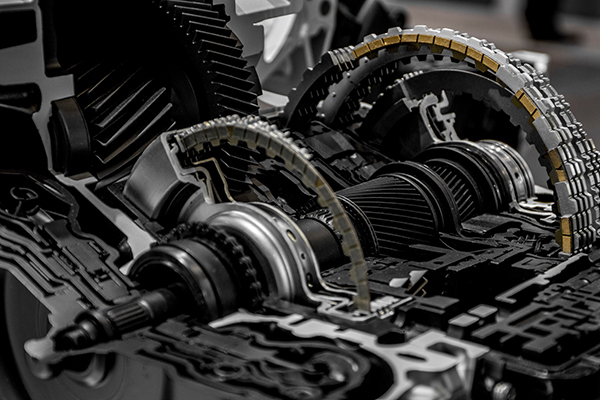
Your automatic transmission effortlessly glides through gears, ensuring a seamless and enjoyable ride. Yet, this vital component often escapes the attention it deserves in the realm of car maintenance. If you continue reading, you will learn some valuable tips and tricks to keep your automatic transmission running smoothly and efficiently. By following these guidelines, you can maintain the health of your transmission and avoid costly repairs in the future. Regular Fluid Checks and Changes Ensuring it's at the right level and in optimal condition is paramount. Regularly check the transmission fluid using the dipstick and follow the manufacturer's recommendations for fluid changes. Fresh, clean fluid helps maintain proper lubri ... read more
Posted on 11/30/2023
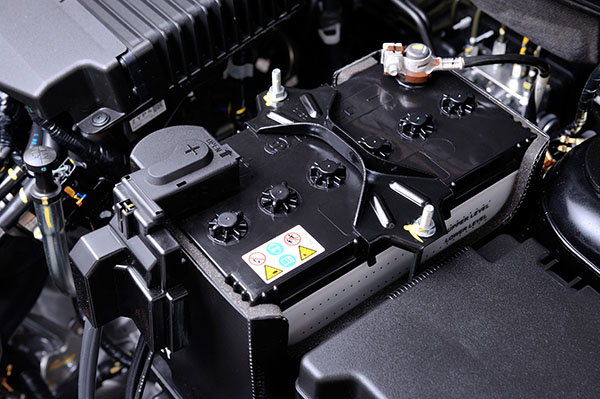
Imagine your vehicle as a living, breathing entity, with its electric components as vital organs, each playing a pivotal role in ensuring a smooth and efficient journey. Neglecting these components isn't just a disservice to your car; it's like ignoring the heartbeat of your automotive experience. In today's electrifying guide, we will go over the five electronic components and systems in your car that demand your attention, care, and admiration. 1. Battery The battery stores electrical energy and ensures that all other electrical systems have the power they need to function. However, batteries are not immortal; they age and eventually lose their ability to hold a charge. To keep this heartbeat strong, routine check-ups are necessary. Look for signs of corrosion on terminals, ensure connections are tight and clean, and replace the battery when it shows signs of ... read more
Posted on 10/30/2023
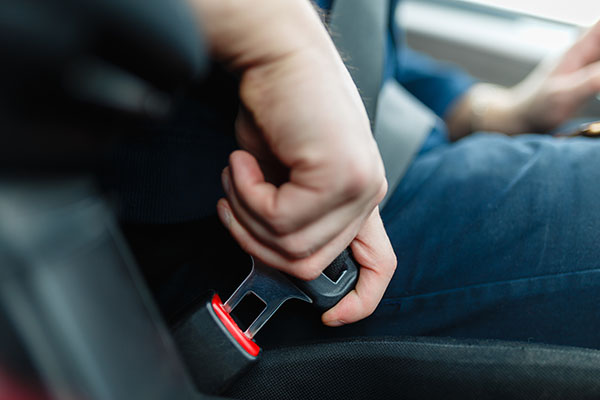
As you cruise down the road, an important part of your car is silently protecting you from unexpected danger - the seatbelt. The seat belt is not just a required accessory but a vital tool that ensures your safety on every drive. Understanding how it works and implementing proper maintenance practices is not only necessary to meet regulations but also a sincere commitment to your own well-being and that of your fellow passengers. How Do Seat Belts Work? The seat belt, a deceptively simple combination of webbing and hardware, plays a pivotal role in keeping you secure during any drive. Its primary function is to restrain occupants in the event of a sudden stop or collision, preventing them from being thrown forward or ejected from the vehicle. They work in conjunction with other safety features, such as airbags, forming a comprehensive safety net that mitigates the impact of accidents and safeguards ... read more
Posted on 9/29/2023
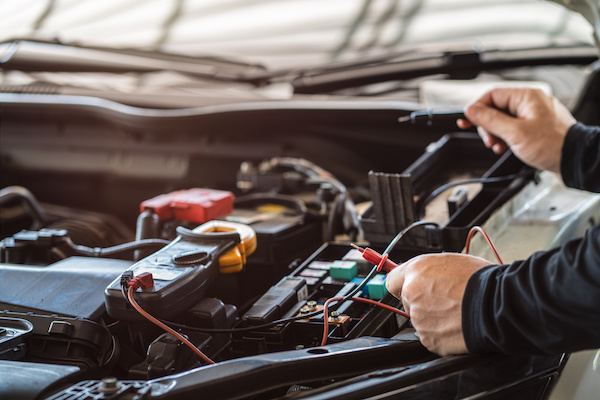
You're cruising down the highway, and suddenly, your headlights start flickering, your radio loses power, and the dashboard lights go dim. Something's amiss with your car's electrical system, and it might just be the alternator. But before you rush to the repair shop, why not play detective and learn how to test if the alternator is the problem? The Vital Role of the Alternator Before we dive into testing, let's understand what the alternator does. Think of it as your car's electrical powerhouse. Its primary job is to generate electricity to power various components, including the battery and the electrical system. It keeps your battery charged while you drive and ensures that your lights, radio, and other electronics work seamlessly. Signs of Alternator Trouble When your alternator is on the fritz, your car will give you subtle hints. Look out for these telltale signs:Dimming Headlights: Your headlights may appear dimme ... read more